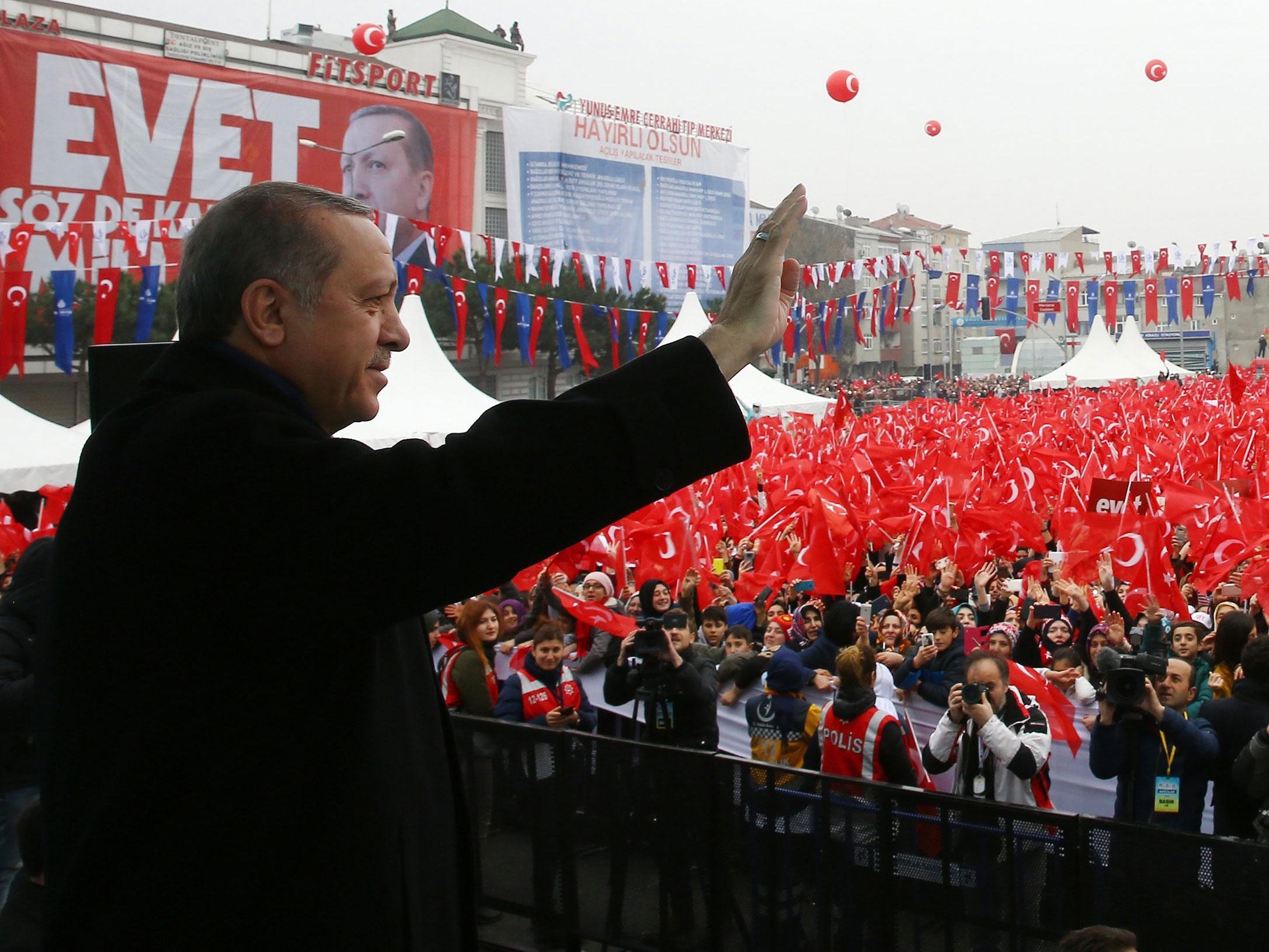Turkey's President Erdogan attacks Netherlands over Srebrenica massacre on eve of historic Dutch election
Latest comments in vicious war of words between the countries threaten to overshadow opening of polls on Wednesday in which far-right on course to make significant gains

Your support helps us to tell the story
From reproductive rights to climate change to Big Tech, The Independent is on the ground when the story is developing. Whether it's investigating the financials of Elon Musk's pro-Trump PAC or producing our latest documentary, 'The A Word', which shines a light on the American women fighting for reproductive rights, we know how important it is to parse out the facts from the messaging.
At such a critical moment in US history, we need reporters on the ground. Your donation allows us to keep sending journalists to speak to both sides of the story.
The Independent is trusted by Americans across the entire political spectrum. And unlike many other quality news outlets, we choose not to lock Americans out of our reporting and analysis with paywalls. We believe quality journalism should be available to everyone, paid for by those who can afford it.
Your support makes all the difference.Turkish President Recep Tayyip Erdogan has launched a fresh attack on the Netherlands, accusing the Dutch of facilitating the massacre of Muslim men at Srebrenica, as diplomatic relations between the countries continue to sour.
Mr Erdogan said a Dutch battalion of United Nations peacekeepers failed to protect some 8,000 men and boys from being slaughtered by Bosnian Serb forces in 1995.
“We know the Netherlands and the Dutch from the Srebrenica massacre. We know how rotten their character is from their massacre of 8,000 Bosnians there,” he said.
Dutch Prime Minister Mark Rutte condemned Mr Erdogan's comments, calling them a “disgusting distortion of history”.
“We will not lower ourselves to this level. It is totally unacceptable,” he told broadcaster RTL Z.
The latest comments in the vicious war of words between the countries threaten to overshadow Wednesday’s parliamentary elections in the Netherlands, in which the far-right is on course to make historic gains.
With the anti-Islam, far-right politician Geert Wilders running just behind two-term right-wing Prime Minister in polls, the Dutch vote could give an indication of whether the tide of populism that swept Britain toward the European Union exit door and Donald Trump into the White house has peaked.
However Mr Rutte says Mr Wilders' manifesto, that pledges to take the Netherlands out of the EU, shut its borders to all immigrants from Muslim countries, shutter mosques and ban the Quran, would lead to chaos.
Mr Wilders fired back in a debate on Monday that it would allow the Dutch “to become the boss in our own country again”.
However, the diplomatic crisis with Turkey and Mr Rutte’s tough reaction to it appears to have cast the prime minister in a positive light on the eve of the election.
The fallout came after the Netherlands barred two Turkish ministers from addressing nationals living in the country ahead of a referendum on 16 April on expanding the Turkish President’s powers.
The Dutch cited “risks to public order and security” behind the decision, however the ban sparked a furious backlash from Turkey’s government with Mr Erdogan branding the country’s citizens “Nazi remnants”, and subsequently barring the Dutch ambassador from returning to Ankara.
Support for the Dutch from Germany and the EU in the escalating diplomatic crisis also provoked an outcry from Turkish officials.
Turkey’s foreign ministry said the EU’s stance was “short-sighted” and “carried no value” for Turkey, as well as lending “credence” to extremists.
Mr Erdogan also responded angrily to German Chancellor Angela Merkel’s support, saying “Shame on you!” during a television interview on Monday.
On Tuesday, he described both Germany and the Netherlands as “bandit states” that were harming the European Union.
The spat has raised concerns that co-operation between the EU and Turkey on a number of issues, such as dealing with the flow of migrants from war-torn Syria, may start to fray.
Turkey halted high-level talks with Dutch government officials on Monday and closed its airspace to the country’s diplomats, making good on a promise to impose sanctions against the country.
The Deputy Prime Minister Numan Kurtulmus said the sanctions would apply until the Netherlands takes steps “to redress” the actions that Ankara sees as a grave insult.
Mr Erdogan said there could be more sanctions to come but did not elaborate.
Germany amended its travel advice for Turkey on Monday, noting that “elevated political tensions and protests that could also be directed against Germany” should be expected during the referendum campaign.
Join our commenting forum
Join thought-provoking conversations, follow other Independent readers and see their replies
Comments